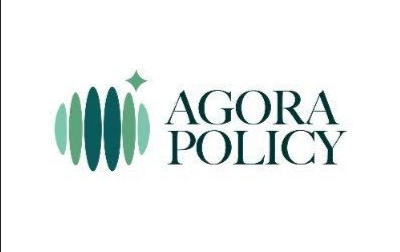Abuse of political power by leaders ranks the worst form of corruption a political scientist and Senior Fellow, Centre for Democracy and Development (CDD), Abuja, Professor Adele Jinadu, has said.
Jinadu said this on Tuesday in a keynote address he delivered at the policy conversation event organised by Agora Policy in partnership with CDD and Centre for Fiscal Transparency and Public Integrity in Abuja on the theme: “The State of Anti-corruption Policy and Practice In Nigeria.”
He noted that the problem of corruption in Nigeria was fundamentally that of democratic political governance in view of its negative consequences for human development in the country.
Corruption as a symptom of the generally anti-democratic political and legal culture and the impunity, he pointed out, pervades the country’s public life, adding that the failure to distinguish between good and bad behaviour seems to be on the loose in the country.
“It is as if we have lost our moral bearings as a nation, as if moral rules do not matter, and we care less about what is right and what is wrong. This is why character and integrity, as elements of the social capital, needed to weld us together as a moral community, are glaringly missing in our political leadership recruitment process. It is a saddening development,” he said.
Rather than focus on efforts to pursue policies and programmes to better the lives of the people, Jinadu said politicians tend to pay more attention to the pursuit of politics not directed at promoting public interest.
Urging Nigerians to seriously address, confront and mitigate the corrosive effect of the country’s toxic and immoral political environment affecting democratic development, Jinadu said that without this the country would not be able to advance its democracy or build development.
“The abuse of the power of incumbency has reached disturbing heights of impunity in our country’s Fourth Republic.
“The worst form of political corruption fuels other forms of corruption in the country. It makes nonsense of the extant indeterminacy of democratic elections, the possibility of today’s winners becoming tomorrow’s losers and the possibility of today’s losers becoming tomorrow’s winners
in our politics of electoral
succession.”
Rather than focussing on delivering democracy dividend to the electorate, the nation’s political elites, he said, have already started the process
of rigging the 2027 general
elections.
The Professor of Political Science said known party members of the ruling political party were being appointed as commissioners of
the Independent National
Electoral Commission (INEC) preparatory to the next elections.
“These officials have started the process of rigging the next general election through the appointment of known party members. Next year, many of the Commissioners will be due for reappointment. They will use
the power of appointment to
put those who will do their
bidding.
‘’Vote buying is done
through the manipulation of the procurement process. They
are amazing war chest for
2027. EFCC should go to
party primaries where the politicians give huge amounts of not only Naira, but even dollars
to buy party tickets, instead of going after poor voters who
get just N2,000 or N4,000.
“Nigerian citizens have
been deceived for too long.
The battle has begun. We are
at a critical point. Time is running out, but it is not too late. We have to adopt the Night
Watch Man approach. We must fight for the future. We should not just fold our arms doing nothing. I am not tired of fighting. We must not give up. We must
speak truth to power,” he said.
In assessing the state of the nation’s anti-corruption fight, Prof Jinadu observed that undue political interference had not allowed the EFCC, the Independent Corrupt Practices
and Offences Commission,
(ICPC) and other anti-graft agencies to do their jobs.
He said the interferences come in various ways, including the constant removal and replacement of Chairmen of EFCC and ICPC, with the former having the ninth Chairman since its establishment in 2003.
On the wide-spread corruption in the country, Prof. Jinadu said the tragedy of the country’s democratic politics and
the roots of corruption was that the political class continued to push its selfish interest, almost to the point not only of their own self-destruction, but also of stultifying national development.
He called for judicial reforms to properly tackle corruption in the system, while calling for reforms in the legal system away from their excessive elitist bias, to engender a more
progressive, activist and
public interest legal culture, anchored on social and distributive justice as state policy.”
In her welcome remarks, the Chairperson of Agora Policy, Ojobo Atuluku, noted the collaborative activities of the organisation with MacArthur Foundation, the British High Commission, the World Bank and others towards economic reforms, anti-corruption, social inclusion and other pivotal roles in shaping Nigeria’s policy landscape through rigorous research and advocacy.
In his goodwill message, the Chairman of the Economic and Financial Crimes Commission (EFCC), Ola Olukoyede, said successive administrations in the country have acknowledged the menace of corruption and adopted various initiatives by all the anti-corruption agencies to tackle the problem in the last two years,
Although major achievements have been recorded, including deepening public consciousness about the fight against corruption, recovery of stolen assets and prosecution for alleged corrupt practices, he said corruption has remained a huge enterprise, particularly the theft of public resources across all levels of government.
He identified the issues hindering to include public cynicism, security of tenure of anti-corruption agency heads and challenges in the prosecution of high profile corruption cases as well as the lack of sustained accountability in reforms in the public sector.
The EFCC, he said, has been able to recover huge funds deployed by the government to finance a number social intervention schemes in the country.
Others who spoke at the event included the British High Commissioner to Nigeria, Richard Montgomery, and World Bank Country Director for Nigeria, Dr Ndiamé Diop, who was represented by the Bank’s Lead Governance Specialist, Deborah Isser.




